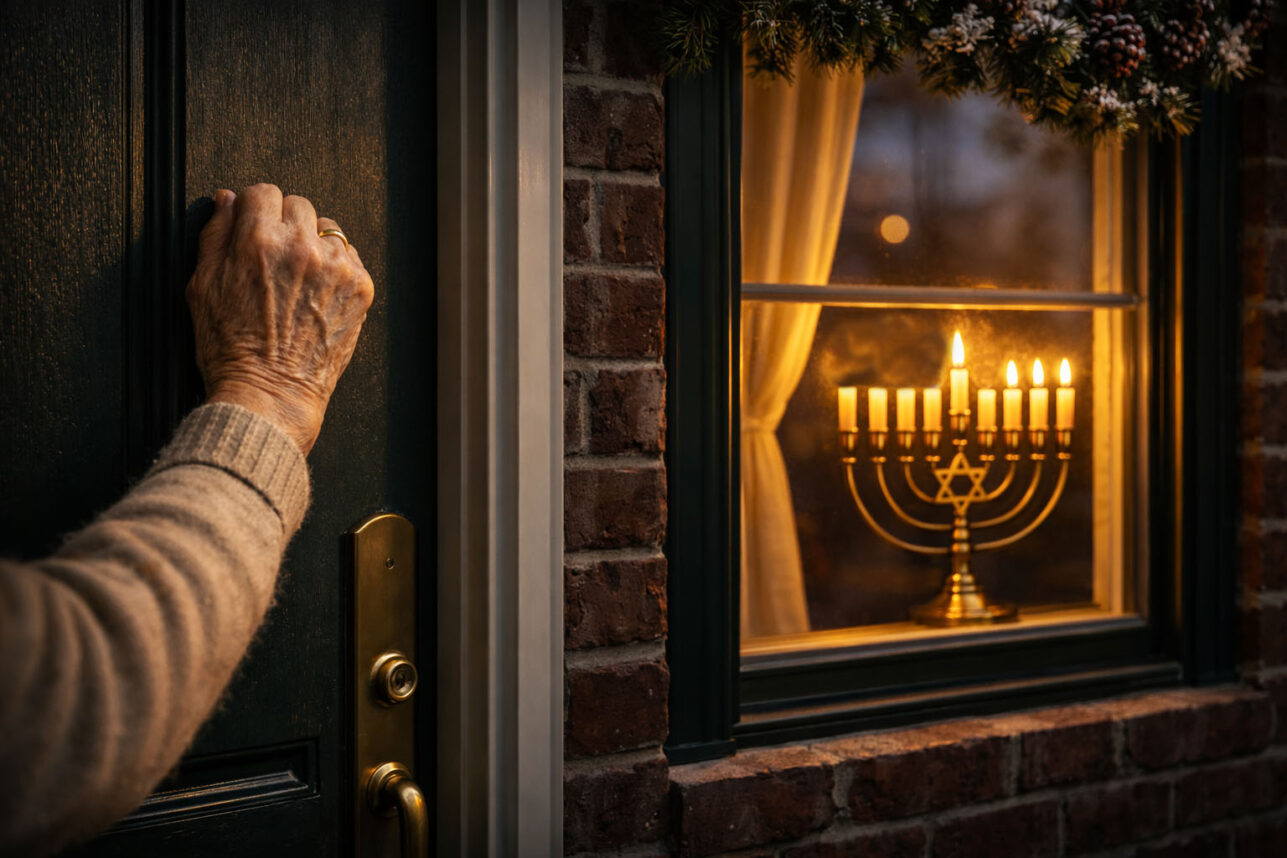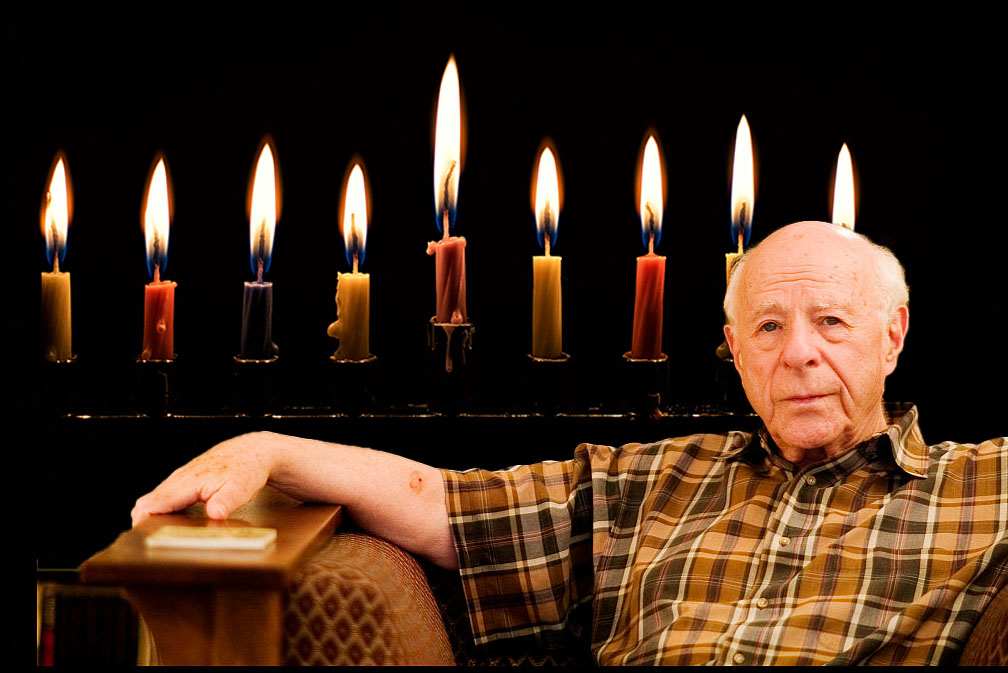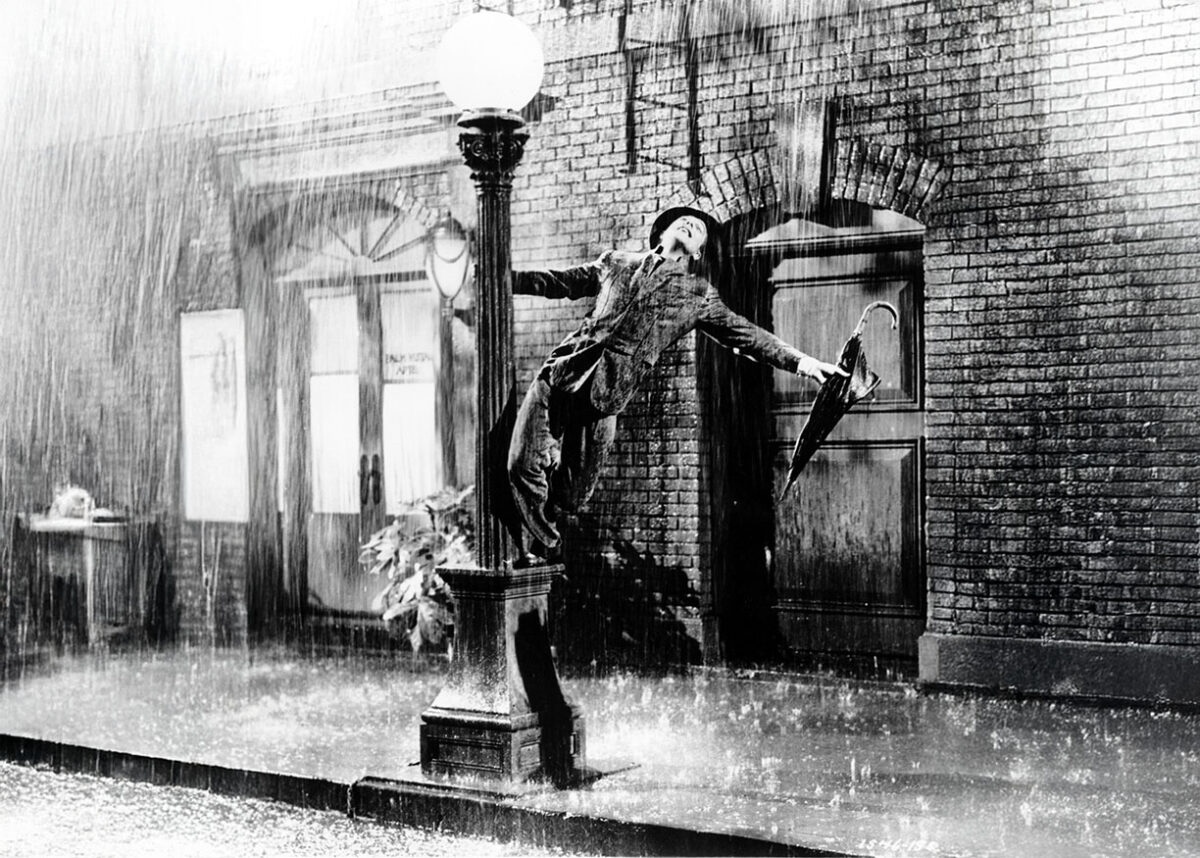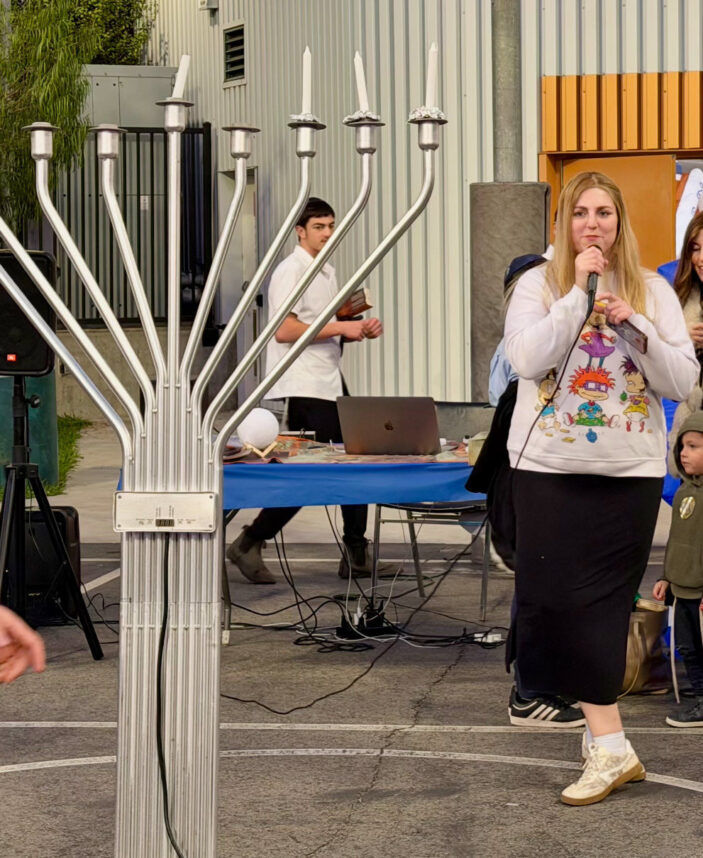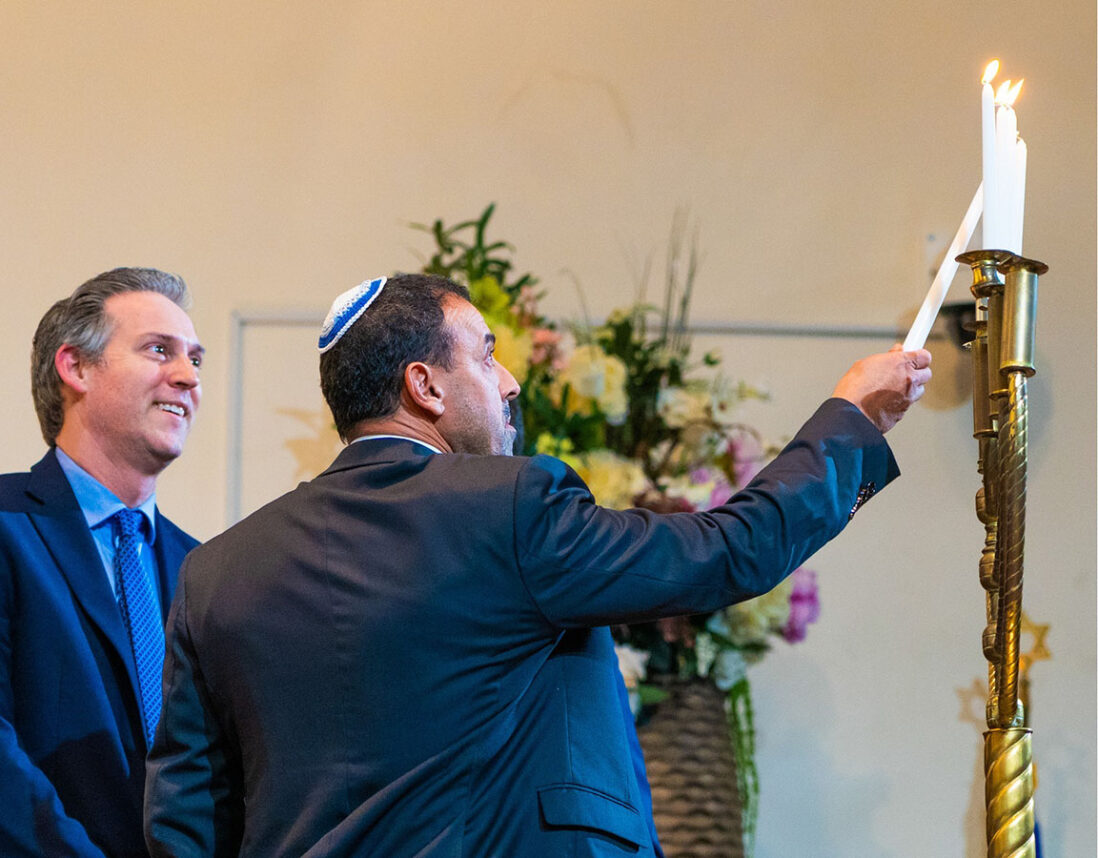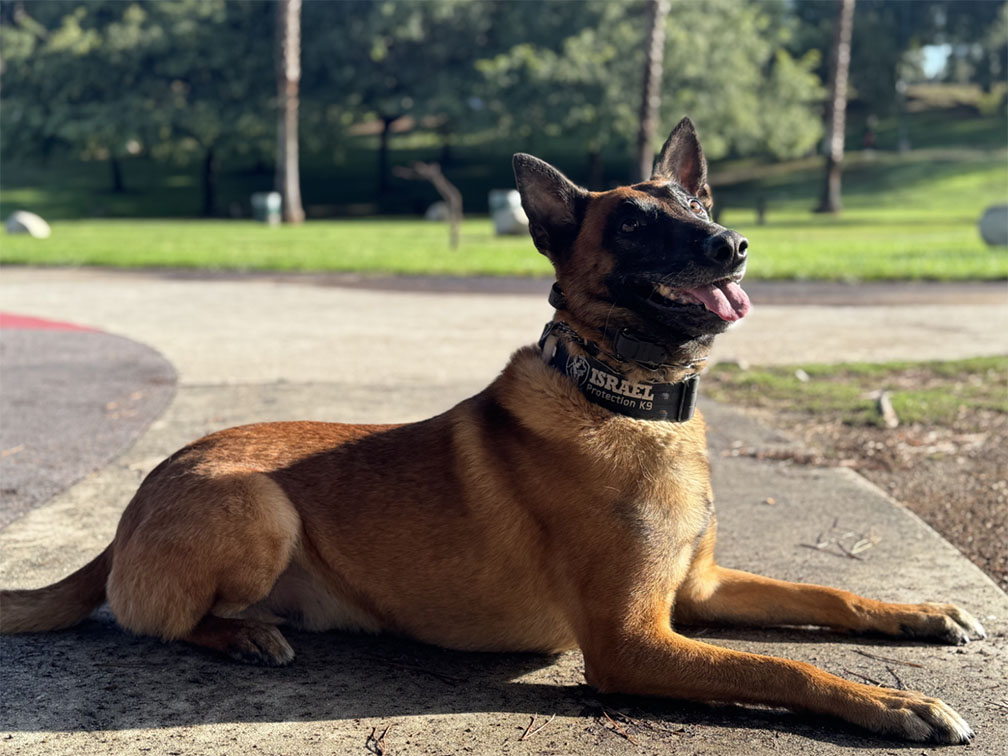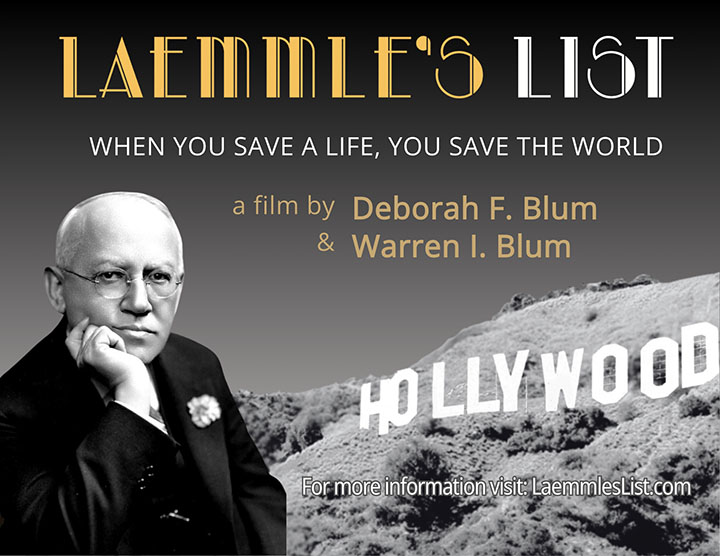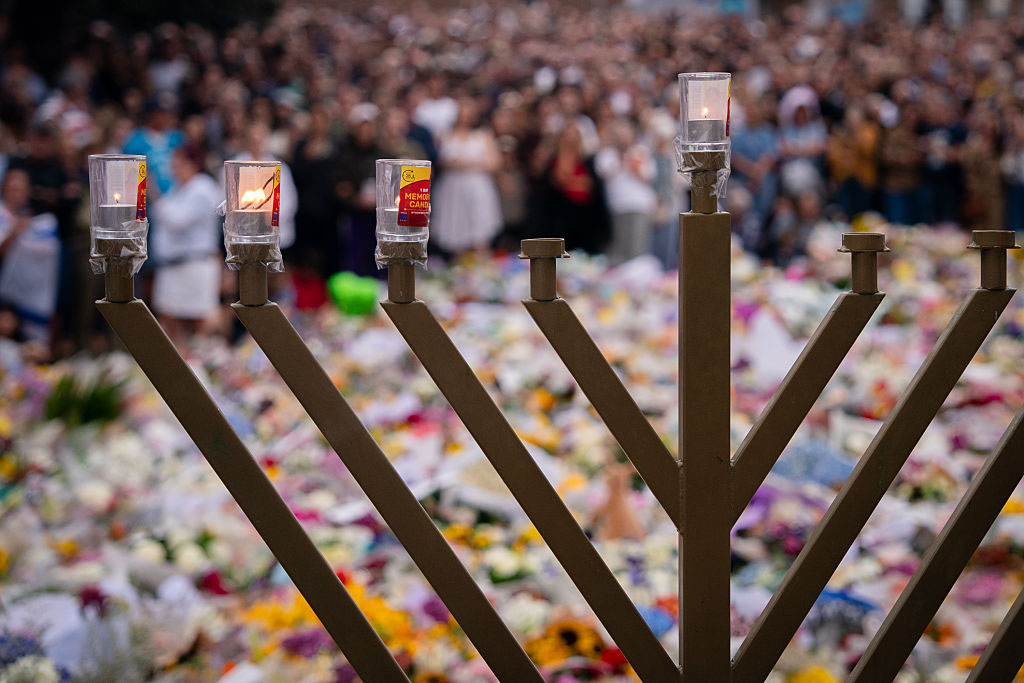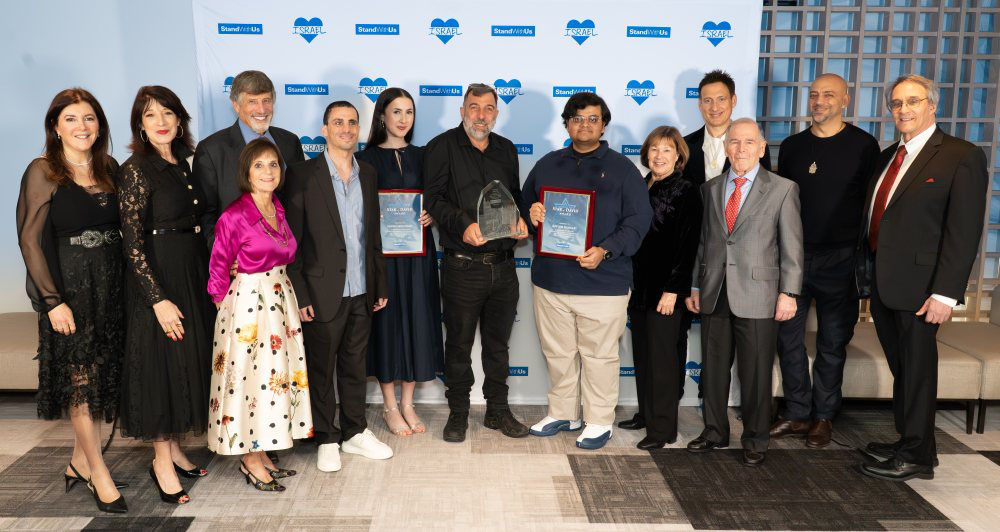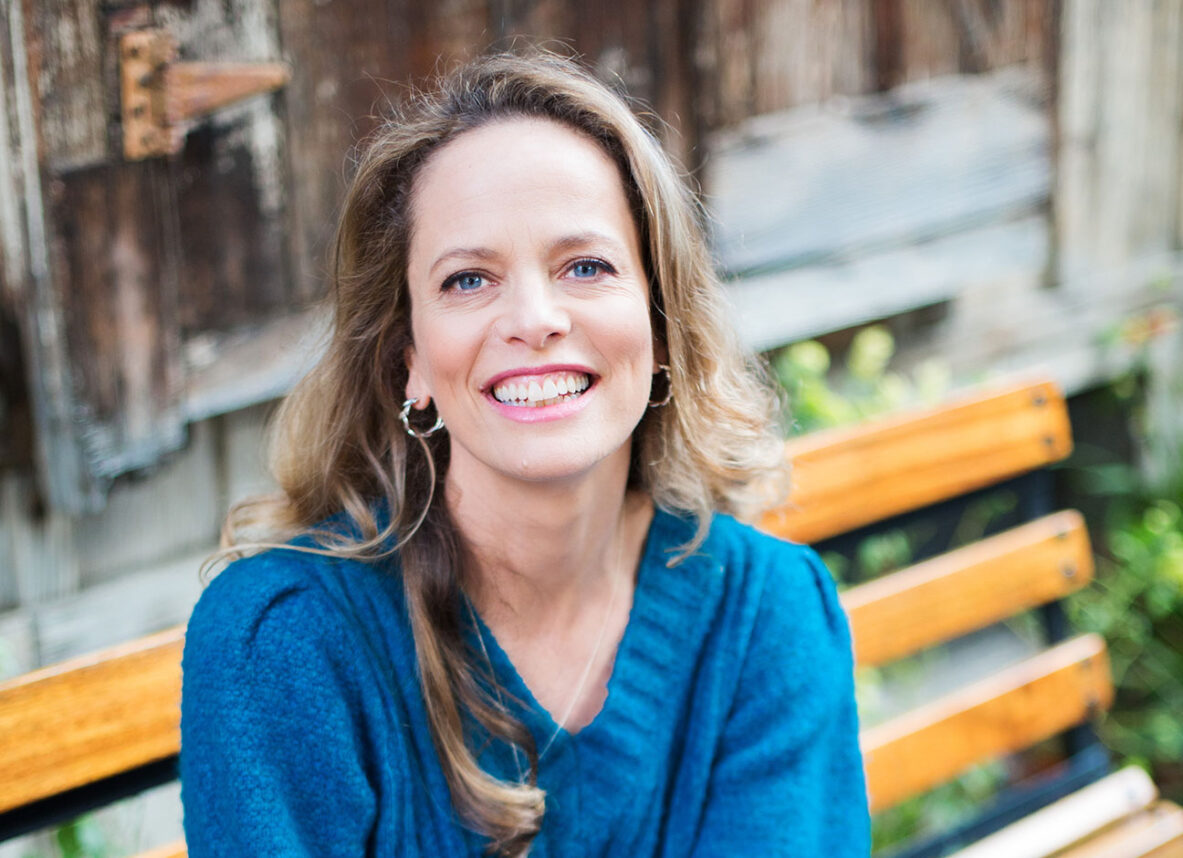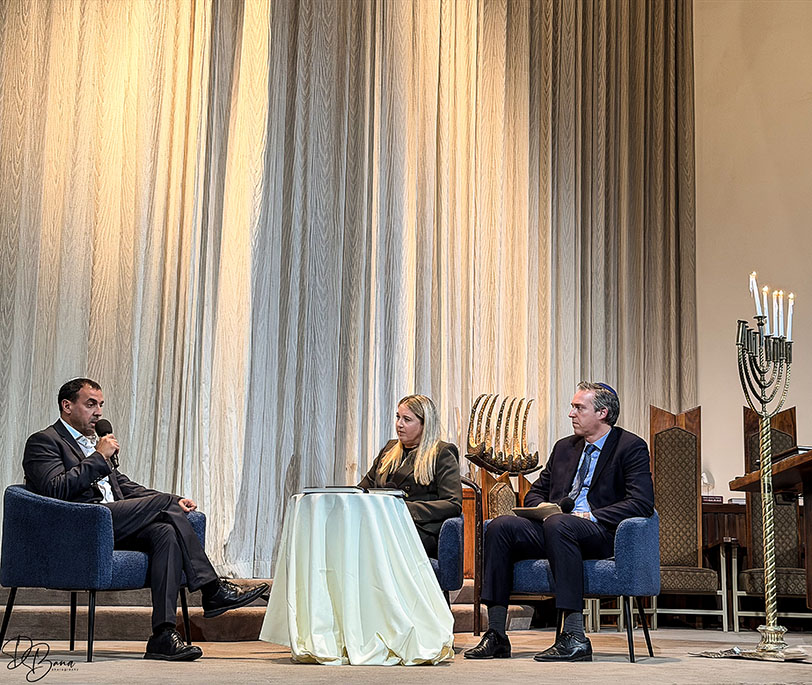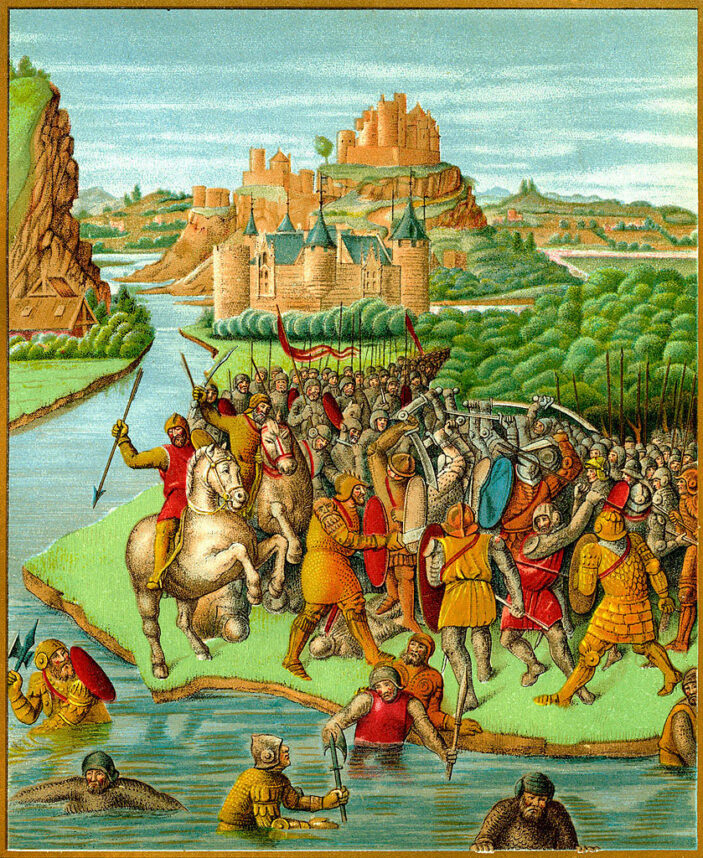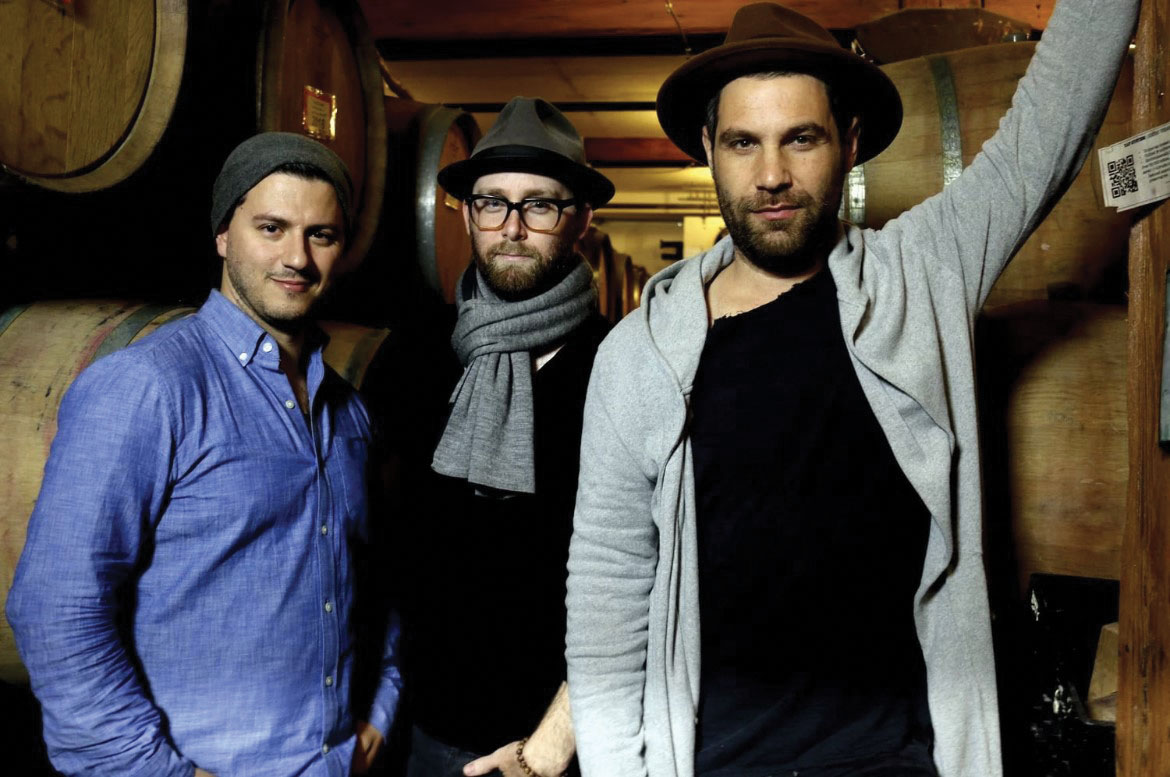
In the opening sequence of the acclaimed documentary “Destination Unknown,” Ed Mosberg dons a blue-and-gray-striped jacket emblazoned with the number 85454 and a matching hat. It’s a replica of the uniform he was forced to wear 70 years ago as a slave laborer in concentration camps such as Mauthausen and Plaszow, some of whose inmates were famously saved by factory owner Oskar Schindler.
Mosberg wears the uniform whenever he has a speaking engagement or visits camps-turned-memorials. He had it with him when he attended a September showing of the film at the University of Southern California, sponsored by the USC Shoah Foundation.
Mosberg, 91, was the only member of his Polish family to survive the Holocaust, and he’s one of 12 survivors in the film who relate their harrowing experiences during World War II. He wears the uniform “so that people never forget that [the Shoah] did exist,” he told the Journal. “My whole family was murdered. I have to talk because they can’t. This is my duty and obligation. As long as I live, I will be talking.”
The film, 14 years in the making, blends archival footage with testimonies from Jews who survived concentration camps, were in hiding, fought with partisans, or were fortunate to have been chosen for Schindler’s famous list. Many had never spoken on the record before. And half of the participants died either during the film’s production or after its completion in 2016.
“Now there’s the recognition of mortality,” said Llion Roberts, the film’s producer. “They don’t want to take this to the grave.”
In the film, survivors vividly recall incidents of brutal treatment, the last time they saw their families, the kindness of random strangers that allowed them to live another day and, for some, the post-liberation reunions with parents and siblings they had assumed were dead.
Listening to Mosberg and the other documentary subjects tell their traumatic tales took a toll on Roberts. “I found it so intense that I had a nervous breakdown in 2004,” he said. “I had panic attacks in 2015. It cost me too much in time, stress and funding. But I’m glad I met the people I met. It’s been an incredible journey.”
Roberts, who is not Jewish, was deeply affected by a visit to Auschwitz-Birkenau in 2001. He couldn’t forget seeing a photo of a 13-year-old girl who resembled his daughter, who was the same age at the time. He started doing research and in 2003 began finding subjects and conducting interviews.
“I was doing 14-hour days of listening to them take me through from childhood to liberation,” he said. “I didn’t ask questions. I just let them talk. Some of these interviews would last five hours. This is why I got such intimacy.”
Roberts ended up with 400 hours of footage, and in 2014 brought in director Claire Ferguson to help him finish the film, with “no narration and primary sources only. No experts or historians.”
“As long as I live, I will be talking.” — Ed Mosberg
Roberts believes what sets “Destination Unknown” apart from other Holocaust survivor documentaries is his use of primary sources. “It keeps it authentic,” he said.”
Stephen Smith, executive director of the USC Shoah Foundation, saw the film in 2016 and came aboard as an executive producer.
“The way the film is woven together, with many stories making up a larger one, will appeal to young people because it brings the testimony alive,” said Smith, who plans to build lessons around the film.
With the alarming rise in anti-Semitism and hate groups around the world, Roberts believes the film’s message couldn’t be more timely.
“History is repeating itself,” he said. “You have another generation coming in, making the same mistakes as the previous ones. There’s a correlation between the mortality of survivors and apathy. Once they’re gone, there’s no obligation to talk about them anymore.”
But Roberts emphasizes that his documentary “is not a history lesson. It is about the resilience of the human spirit, and hope,” he said. “Even for people who have experienced the worst kind of trauma, there is light at the end of the tunnel.”
“Destination Unknown” opens Nov. 10 at Laemmle’s Music Hall in Beverly Hills.












